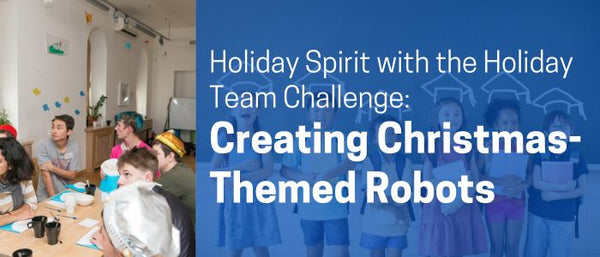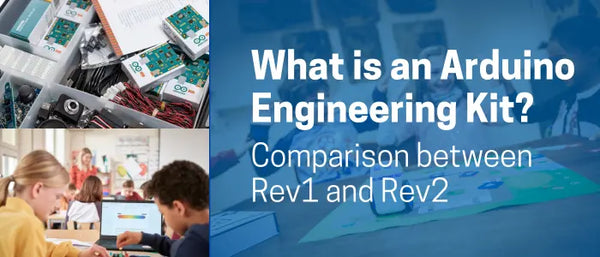4 Ways to Prepare Your Child to be a Natural in STEM Subjects
Note: STEM refers to Science, Technology, Engineering and Mathematics.
Don’t we all wish we could have been a natural when it comes to acing STEM subjects in school? Apart from being about to ace the STEM subject examinations in Singapore, what does it mean to be a natural in STEM?

What is a STEM Natural?
Someone who is a natural in something means that they understand particular concepts quickly or acquire skills related to a certain topic easily. While some may chalk it up to talent, we believe that through the right exposure at a young age, your child can become a natural in STEM too.
Benefits of being a Natural in STEM
Being a natural at STEM offers many benefits in life, even if you’re not someone working in the field itself. Gone are the days when studying STEM was only useful for the stereotypical computer engineer, scientist or math teacher. TikTok influencers should be able to understand the STEM concepts behind their account’s basic data analytics to help determine marketing strategies at the start, for example.
Don't Get Left Behind
Nowadays, in order to thrive, you would have to keep up with technology around you. What this means is that if you cannot grasp the relevant concepts of STEM, you might end up being left out of new technologies and systems.
The Main Crux
The main crux of this whole article is contextualisation of STEM in everyday life. As a parent and early educator of your children, you will need to contextualize your child’s learning with their everyday experiences. Contextualising will help them better understand concepts and how they relate to the world around them. Even the simplest things like playing in the rain can involve many STEM concepts. You don’t need a science experiment to learn science.
Here’s how you can start preparing your child (as young as 4 years old) to be a natural!
1. Introduce Your Child to Different Environments
2. Encourage Exploration
3. Align STEM with their Personal Interests
4. Simplify Concepts with Tools and Programmes
1. Introduce Your Child to Different Environments

Get your kids excited about the world around them! Let them witness natural phenomena or share videos about interesting things that happen in the world. Remember that what may be the norm to you could be something entirely new and exciting to your child!
Start Small with Everyday Phenomena
You don’t have to travel the world. Start small by observing your neighbourhood park or train station. Not an outdoors person? Browse through Youtube for nature/STEM phenomena videos! (Warning: Your kids might want to go outdoors after that!) The next step would be to bring them to STEM-themed exhibitions and events to encourage further fascination.
Spark Endless Curiosity
Seeing something new and exciting might spark curiosity in them to find out how and why things happen. Curiosity is the start to endless learning opportunities!
2. Encourage Exploration

Answering Questions
Once your child is curious about the world around them, start encouraging exploration by providing them tools to ask questions and discover the answers. Funny enough, the first exploration tool is usually an adult. Curious children tend to ask adults around them for answers to their questions.
Smart Ways to Find Answers
What you can do apart from answering the 1001 questions they have is to teach them how to find those answers through other means. This could mean teaching them how to ask Google or Siri a question. Some questions can be answered through play and further observation so facilitate their exploration as best as you can.
Warning: There are going to be tough questions that even adults won’t be able to answer but it’ll all be worth it in the end!
2. Align STEM with their Personal Interests

STEM Concepts are Everywhere!
As a parent, you probably would have noticed certain activities or themes that excite your child. Their interests are the best vehicle to impart knowledge and skills. Try to incorporate STEM learning lessons into these interests. For example, you can talk about momentum to your little ballerina or measurement units to your little chef.
Pro-tip: If you’re not sure what STEM concepts are part of your child’s favourite activities, just Google “STEM concept [insert child’s interest or hobby]”.
3. Simplify Concepts with Tools and Programmes
Renting and Buying
Some concepts are not easy to understand from the get-go. Luckily for us, these days there are many STEM tools you can rent or purchase to help with your child’s understanding. Not all tools are built the same though.
Get Help from Professionals
If all this sounds daunting to you, you can always send your child to a STEM-based programme where they will help your child appreciate STEM early on in life.
You can visit our webstore or learning centre for tools and programmes that can facilitate their STEM learning journey.
Webstore: https://ducklearning.com/pages/webstore
STEAM Engine (Our Learning Centre): https://ducklearning.com/pages/steam-engine

Conclusion
In conclusion, early exposure to STEM is important in helping your child appreciate it later on in life. Provide your child a comprehensive learning environment and watch them grow into balanced individuals they are meant to be! Children love to play, so how make them learn while they are at it.



